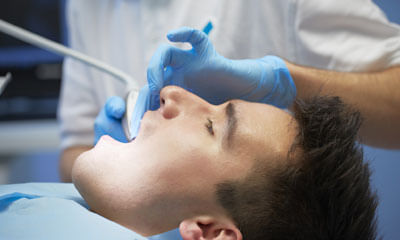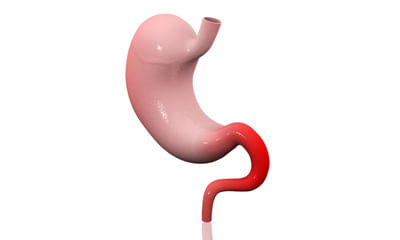Excess Saliva During Sleep
I am facing issue of drooling while sleeping from last two month. Excessive saliva secret from mouth while sleeping. Wha ...
Ask Free Question
Drooling is very common sometimes drool is symtom of a neurological condition, sleep disorder contact me on line.
Sir my height is 162 cm and weight is 7okg. When I am sleeping in night in morning or in mid night there is lot of saliv ...
Ask Free Question
Although excessive saliva is not too common, there are a number of conditions that can cause it - some harmless, others more serious. It is possible that your saliva problems are just a result of the way you speak. Some people speak faster or slower than others, just as some people blink more often, breathe faster, or have a more rapid heartbeat. This may just be what's normal for you. Since it is negatively affecting your life, I suggest your problem can be ignored.
Dear doctors how to come out of rabies fear. I am from chennai .as I stepped on a sleeping dog and due to pain it shoute ...
Ask Free Question
It can be cured by homoeopathic treatment. You can consult me at Lybrate. Till then take aconitum 1m.
I have been experiencing saliva formation in my mouth in sleep for two years now. It's affecting my sleep & general well ...
Ask Free Question
'Mandagni' leads to 'Kafadhikya' causing excess salivation as per ayurved. Other physiological functions are also hampered sometimes due to sinus (covered under kafadhikya) or some neurological problem (rare at your age) covered under vata. Ayurvedic treatment is based on balancing vata, pitta, kafa and 'agnipradeepan' it's very effective and simple treatment. Generally two weeks are needed but we recommend treatment upto 4-6 weeks. If interested, may contact.
Hi, I experience excess saliva formation in my mouth during sleep. I have to wake up in the middle of my sleep to spit o ...
Ask Free Question
Drooling is usually caused by excess saliva in the mouth. Medical conditions such as acid reflux and pregnancy can increase saliva production. Allergies, tumors, and above-the-neck infections such as strep throat, tonsil infection, and sinusitis can all impair swallowing. You need acheck up to find out the cause
He recently found slight blood in his saliva after an episode of excess acidity. It started with him having to remove ye ...
Ask Free Question
It may be due to gastritis, ulcer in upper digestive tract. But for confirm diagnosis endoscopy should be done, for relief take some PPI and you have to manage you weight around 80.
Symptoms: 1.Dry lips and some time bleeding 2.Excessive saliva in mouth 3.frequent urination, Yellow urination few times ...
Ask Free Question
Cantharis 12c 4tims day for 10days Sarasapa 12c 3tims day for 10days Ber v 12c 3tims day for 10days Lyco 6c 3tims day for 10days
I'm suffering from bad breath from last seven years. Several test has be done like endoscopy. Blood test, etc. Dental do ...
Ask Free Question
What is Halitosis (Bad Breath)? Halitosis, commonly known as bad breath, is an embarrassing health condition that affects approximately 30% of people around the world. Additional medical terms for this condition include stomatodysodia, fetor oris, and ozostomia. Regardless of the term used, this is the presence of a foul-smelling odor that seems to come from the mouth cavity. According to the Academy of General Dentistry, in more than 90% of cases, the odor originates in the mouth, throat, and tonsils. Although this is something everyone experiences at one time or another, if your case does not improve after brushing, flossing, and rinsing the mouth with an alcohol free mouthwash, it may be chronic. The foul oral odor is usually caused by a group of anaerobic, sulfur-producing bacteria that breed beneath the surface of the tongue and often in the throat and tonsil area. The term "anaerobic" literally means living without oxygen, and in fact, these bacteria do not require oxygen to live. They occur naturally in the oral environment and are essential because they assist in digestion by breaking down proteins into amino acids. Proteins are commonly found in food, mucus or phlegm, blood, and in diseased oral tissue. As these bacteria feast on proteins in your mouth, sulfur compounds are released from the back of your tongue and throat. The bacteria excrete waste as hydrogen sulfide, methyl mercaptan, and other odorous and bad tasting compounds known as volatile sulfur compounds. As long as the anaerobic bacteria feed on proteins and excrete volatile sulfur compounds unchecked, your breath will become worse and worse. Four Common Bad Breath Causes There are many underlying causes of halitosis, but four of them are very common. Dry mouth: Xerostomia, the medical term for dry mouth, provides a perfect environment for anaerobic bacteria reproduction. Long periods of speaking, smoking, drinking alcohol, and snoring are a few common underlying causes. Most people experience foul breath in the morning due to lack of saliva production while they sleep. For healthy individuals, food odors are temporary and normal salivary flow will eliminate them within several minutes. However, those who suffer from dry mouth and lack of saliva find that even minor food odors may lead to long-term issues. Foods: Halitosis can be exacerbated by certain foods such as onions and garlic because they contain smelly sulfur compounds, while dairy, meat, and fish contain dense proteins which are used as a food source by the anaerobic, sulfur-producing bacteria. Refined and processed sugars also provide a food source for bacteria. Coffee and juices can contribute to this problem because they are acidic and provide these bacteria with an ideal breeding environment. Poor dental hygiene: Inadequate oral care causes bacterial buildup on the teeth and gums. Teeth cannot shed their surfaces the way skin can, so microorganisms can easily attach to the teeth and remain there for extended periods. If they are not continuously removed by adequate brushing, these bacteria develop into something called biofilm, commonly known as dental plaque. When plaque is allowed to accumulate near the gumline, it will harden and begin destroying teeth and gum tissues due to intense bacterial activity. This leads to gum disease such as gingivitis and periodontitis, which enable proteins from bleeding gums and diseased oral tissue to fuel odor-causing bacteria. Tooth decay and poorly fitting or dirty dentures can also contribute to this problem. Illness and disease: According to studies, an estimated 10% of all halitosis cases are caused by certain illnesses. Individuals who suffer from diabetes, lung disease, kidney disease, cancer, liver disease, respiratory tract infections, or metabolic disorders often experience chronic foul breath due to dry mouth. Sinusitis, pneumonia, bronchitis, postnasal drip, and polyps affect the airways and may also contribute to the problem. Other common illnesses associated with bad breath include nasal odor and tonsil stones, yeast infections of the mouth, and gum disease. Certain drugs such as antidepressants, high blood pressure medications, and antihistamines can factor into dry mouth because they reduce saliva production. Please Note: Halitosis is rarely associated with life-threatening diseases. However, it is important that you consult your doctor or dentist as soon as you notice consistent white spots on the tonsils and sores in the mouth with or without a fever. Sometimes bad breath is triggered by severe health conditions such as throat or mouth cancers, human immunodeficiency virus (HIV) infection, digestive system disorders, or diabetes – and further, can indicate dehydration or zinc deficiency. Taking proper care of your teeth and visiting the dentist at least twice a year are the easiest ways to avoid these issues. Halitosis Symptoms Offensive breath tells us that something is out of balance. In fact, anthropologists have reported that once humans started to kiss each other, the ability to smell one another's breath became a very important way to test a partner's compatibility. If the other person didn't pass the smell test, they were not able to get to the next step towards securing a mate. Halitosis is a medical condition that lowers self-esteem and affects everyday life and personal relationships. People with chronic or recurring bad breath often lose their self-confidence. It can be difficult to know if you have this problem, because it is often challenging to pick up on one's own scent. Furthermore, family members and colleagues may not feel comfortable telling you. One of the best ways to find out if you have foul breath is to lick the inside of your wrist, wait five seconds, and then take a whiff. Most symptoms of halitosis depend on the underlying cause. The most common symptoms include postnasal drip, a bitter metallic taste, a white coating on the tongue, and thick saliva. Many individuals who have foul breath associated with dry mouth can experience difficulty speaking or swallowing, a burning sensation in the mouth, or dry eyes. Fever, sore throat, persistent cough, and swollen lymph nodes in the neck indicate respiratory tract infections, which can also be a contributing factor. Getting a Proper Diagnosis The best way to truly identify the source of chronic halitosis is to visit a dentist or doctor for a professional diagnosis. When you are ready to tackle this situation, be sure to be open and honest with the healthcare professional performing the examination. It is important for him or her to understand all the health problems you are experiencing in order to determine the underlying cause and recommend appropriate treatment. The Halimeter (also known as a portable sulfide gas monitor) is the most commonly used clinical diagnostic instrument utilized in this field. It measures the concentration of hydrogen sulfide in parts per billion (ppb) in mouth air. The Halimeter uses a patented electrochemical voltammetric sensor, which has provided reproducible results to clinicians for the past 20 years. It has been demonstrated hundreds of times on national and local television by Dr. Harold Katz on programs such as The View, Good Morning America, and CBS Morning News. Getting Proper Treatment For more than a century, pharmaceutical companies attempted to alleviate halitosis by using mouthwash that contained alcohol. This is the exact opposite of what should be done because alcohol is a drying agent. Clinicians have learned a good deal in the ensuing years, and in most cases, this condition can be successfully treated. Like the symptoms, treatment depends on the underlying cause. It is important to keep in mind that you cannot eliminate the bacteria from the tongue that cause bad breath. Consequently, scraping or brushing the tongue is a temporary remedy at best, and is typically frustrating for those who believe tongue scraping or tongue brushing is a permanent solution. The bacteria that cause this are part of your normal oral flora and are essential to breaking down proteins, a key step in normal digestion. A much simpler and clinically-proven method to treat bad breath is to interrupt the bacteria's chemical production of odors by introducing oxygenating compounds to your oral environment. Oxygen is the natural enemy of the bacteria that cause this problem because they are anaerobes and cannot function in the presence of oxygen. In general, a dentist will recommend mouthwashes and toothpastes that contain oxygenating agents such as chlorine dioxide or sodium chlorite to neutralize volatile sulfur compounds and help control odor causing bacteria found in the mouth. If you are experiencing mouth dryness, your dentist will recommend a saliva substitute to moisten the mouth throughout the day. Some effective, natural ingredients to look for in oral care products are zinc gluconate, aloe vera, green tea, tea tree oil, xylitol, CoQ10, glycyrrhizic acid and oral probiotics like K12 and M18. Six Bad Breath Home Remedies The practice of a few, simple, self-care techniques can help to minimize halitosis. There are several things you can do at home. Advanced oral care products: Use oral care products such as mouthwashes and toothpastes that have been shown to be effective in fighting bad breath. Proper oral care: Brush and floss your teeth at least twice a day. Be sure to get a toothbrush with soft bristles (as to not damage tooth enamel or gums) and also use fluoride toothpaste. Brushing and flossing helps to remove any food and plaque which can be used as a fuel source by the anaerobic, sulfur-producing bacteria that are at the root of this problem. Stimulate your salivary flow: Prevent dry mouth with chewing gum, lozenges, or mints that are sugar free. Look for Xylitol, a non-sucrose sweetener, which in recent years has been shown to have anti-cavity properties. Eat fibrous fruits and vegetables: One of the best ways to remove bacteria in the mouth is to eat an apple a day. It helps moisten the mouth, too. Take a dietary supplement: Vitamin C, Vitamin D, Vitamin E, and Vitamin B are effective at helping your body eliminate excess mucus and toxins naturally. Brush your teeth occasionally with baking soda: The bacteria that cause bad breath thrive in an acidic oral environment. Brushing your teeth with baking soda helps neutralize excess acids found in the oral cavity. 12 Easy Ways to Prevent Bad Breath Please remember, preventing halitosis is always easier than treating it. By developing the right habits, you can effectively help prevent it. Eat foods rich in fiber: High fiber foods help prevent halitosis. Avoid eating heavily processed foods that contain refined carbohydrates such as cookies, cakes, sweets and ice cream. Use mouthwash: Some mouthwashes or oral rinses are effective at preventing bad breath. However, you should never use alcohol based mouthwashes because the alcohol makes the mouth very dry, which will actually make the problem worse. Drink green and black teas: They contain polyphenols that help eliminate sulfur compounds and reduce oral bacteria. Avoid drying medication: Try not to take antidepressants, diuretics, pain relievers, and antihistamines unless it is absolutely medically necessary. These drugs inhibit saliva flow and can cause chronic dry mouth. Avoid products with sodium lauryl sulfate or alcohol: Do not use any oral hygiene products that contain sodium lauryl sulfate or alcohol because the alcohol makes the mouth very dry, one of the most common causes of bad breath. Clean your mouth after eating meat, fish or dairy products: Practicing consistent and thorough oral hygiene is an effective prevention tool. Stop smoking: Studies have shown that smokers are at higher risk of developing periodontal disease and dry mouth. Furthermore, people who smoke may also engage in other habits that promote this condition such as dieting, drinking alcohol, and suffering from chronic anxiety conditions that require exacerbating prescription medications. Breathe through your nose instead of your mouth: Try to address any snoring or sleep apnea issues that could be affecting your breath and causing dry mouth. Drink water: Keep your mouth moist by drinking plenty of water. Clean your dentures at least once a day: Practice the same, proper oral care that you would with your original teeth. Eliminate dairy products from your diet: Lactose intolerance can be an underlying cause of halitosis. Use an oral probiotic like S. Salivarius K12 and M18: Use probiotics to balance the oral cavity and prevent an overgrowth of the odor-causing bacteria involved in halitosis.
Please suggest. What are best precautions & also remedies for mouth ulcers mainly homemade. ...
Ask Free Question
Stress is the main cause of ulcelr avoid it sharp edges or broken tooth is also a reason some time get it corrected bottomline correction of underline cause is the treatment choice for ulcers.
I am getting very excess saliva in mouth while sleeping in night. I have to to spit again and again in night disturbing ...
Ask Free Question
Hello lybrate-user, Your description fits that of Sialorrhea or excessive salivation. Well the causes for this can be several some of which include: cavities infection gastroesophageal reflux pregnancy certain tranquilizers and anticonvulsant drugs exposure to toxins, such as mercury A detailed history will help your doctor define the cause of the problem. Treatment will depend on the cause. If cavities get them restored. If the causes are otherwise then injections may have to be administered. Your doctor will be able to best judge and treat it accordingly. Depending on the cause, increased salivation may resolve with treatment or require close management over time.






